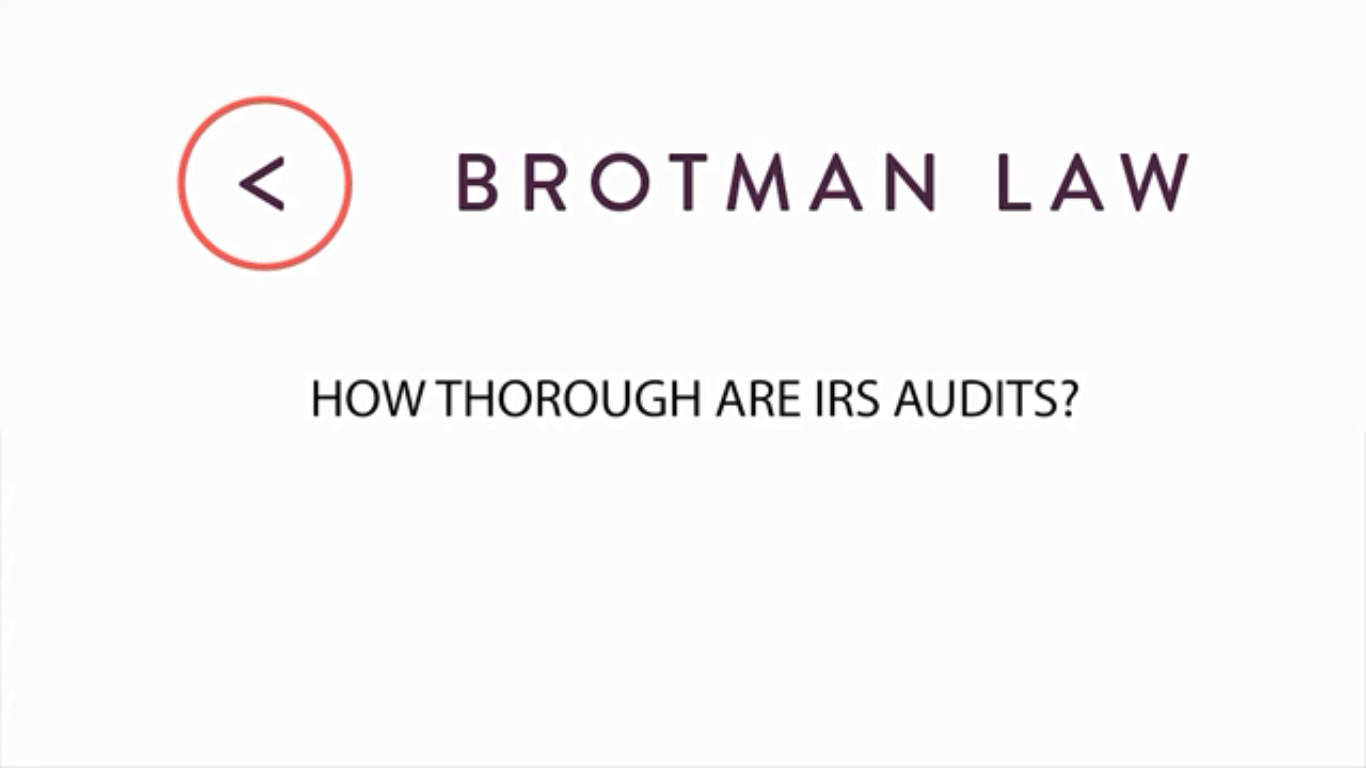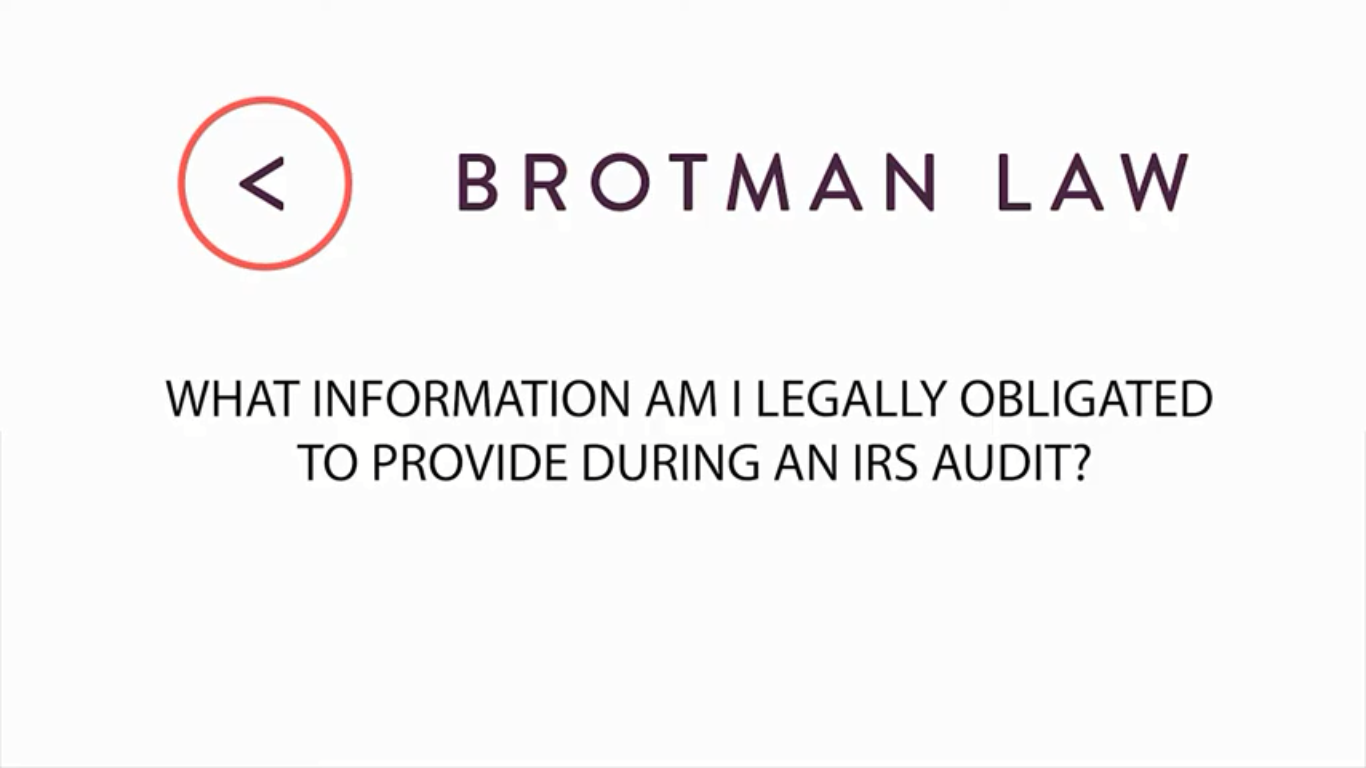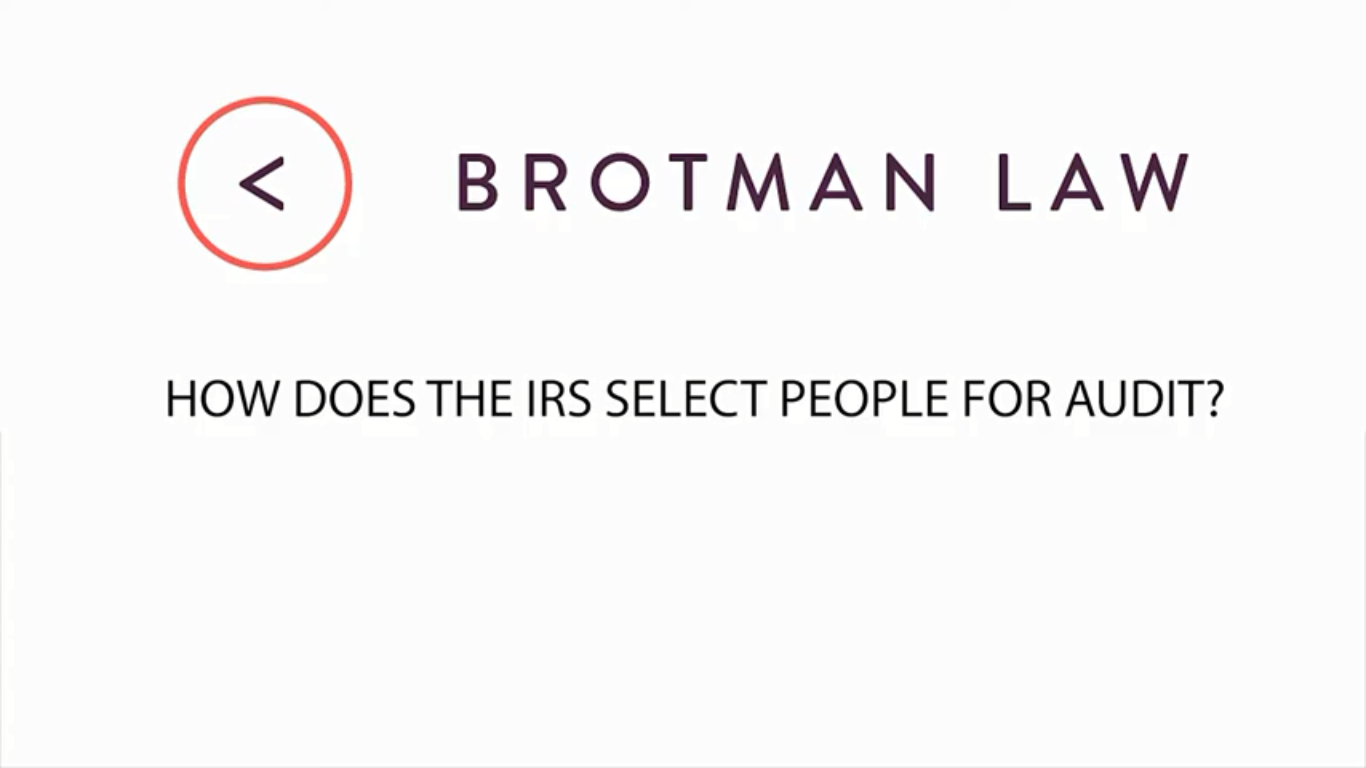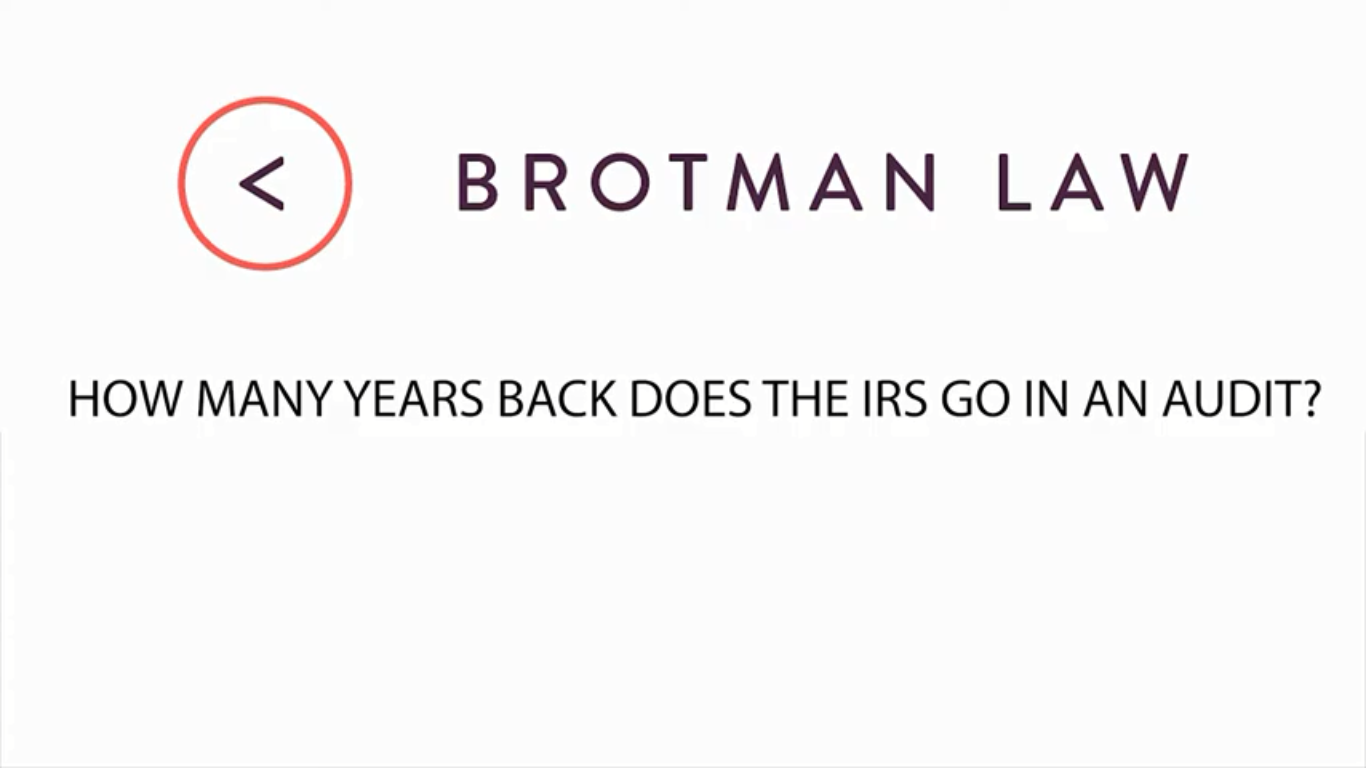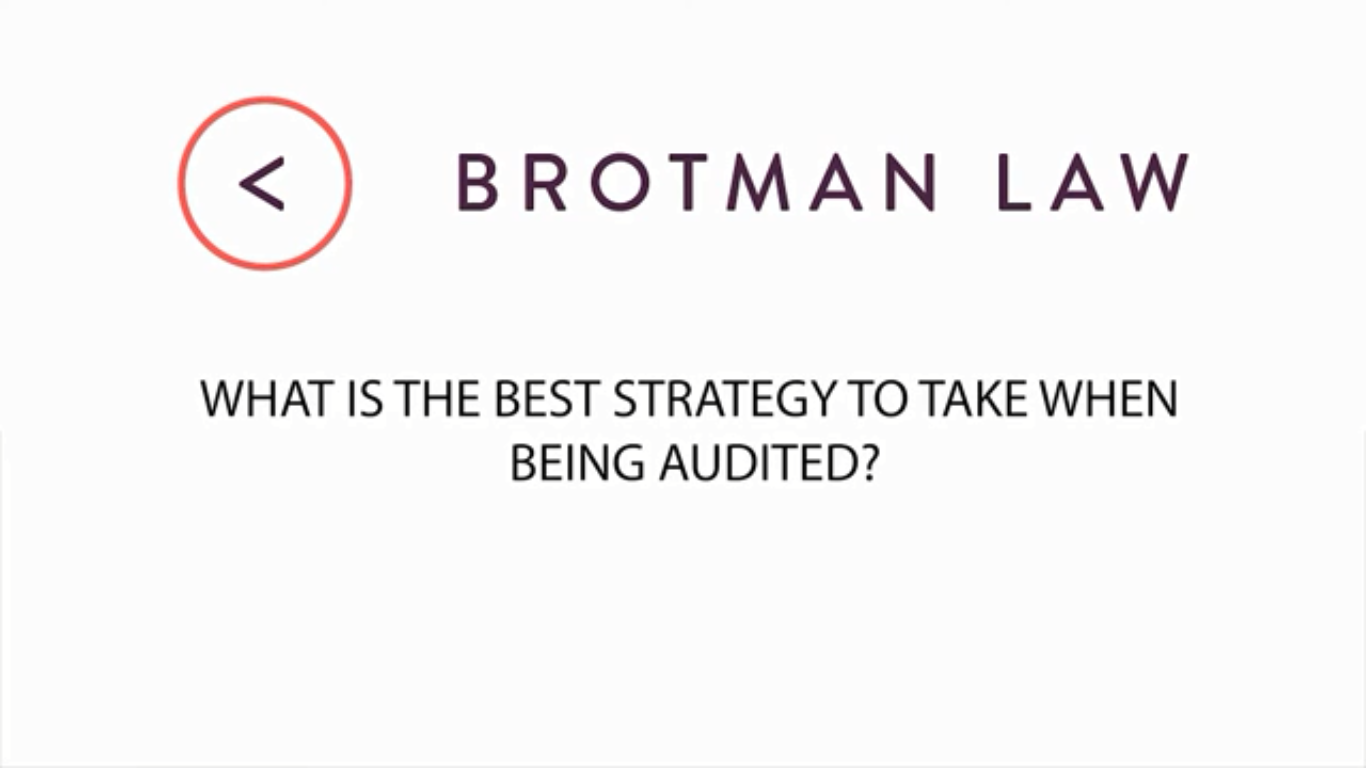Should I Be Concerned If I Am Selected for an IRS Audit? So understanding that an audit is a basic check here’s why I think that you should be somewhat concerned if you’re selected for audit by the IRS so the first thing to understand is that the government can’t audit everybody the government is operating with very limited resources particularly over the last few years politically it’s not popular to fund the IRS to create havoc or create any sort of discontent among floating tax payers as a politician funding the IRS is not something that makes you popular with your constituency but the reality is is with a shrinking budget and with the IRS being forced to do more and more things and do that differently the IRS is very picky picky about who it chooses to audit so the first thing to consider is that if you were selected for audit there must be a good reason for it.
video-blog
What Are My Chances of Being Audited by the IRS?
What Are My Chances of Being Audited by the IRS? So understand that the IRS has very few resources to audit taxpayers taxpayer audits are something that’s fairly time-consuming I mean if you think about what most people think about when they think about an otter they have to send somebody out that person has to look through your books and records they have to make a determination and there’s an investment of time that goes along with it most IRS offices are not particularly well staffed particularly with field auditors which is what most people equate IRS audits? To so you have to understand that the IRS doesn’t have a whole lot to go after people so again they pick and choose what they have based on the resources that they have available the type of audit that has been issued is a good indicator of what the seriousness of the audit is.
If You Are Audited by the IRS Can You Just Pay Them What You Owe and Get Them Out of Your Life?
The IRS then they want to do an investigation to some varying degree.
What Are IRS Audit Red Flags?
We get asked this a lot because what taxpayers want to do is they want to try and make their return audit proof. So there are a number of things that the IRS looks for on both business and personal returns but it’s really difficult to say what exactly red flags are. I can give you some general examples. So a general example of a red flag is a round number. To the extent you’re using round numbers on the return, the IRS thinks that you’re probably guessing because if you say “well I spent five thousand dollars on advertising,” you probably didn’t spend five thousand dollars exactly. You probably spent four thousand nine hundred ninety-eight dollars or five thousand two dollars or whatever but to the extent you’re showing exactly round numbers, that’s usually a red flag and an indication of guessing. Number two would be unusual expenses on a return. So things that look like fun, that’s what I tell my clients are things that usually get audited. So international travel, lots of meals and entertainment expenses, things like that. Well that’s a lot of expenses, things like that are going to get you probably targeted but what most people don’t realize is the IRS actually audits people based on statistics. So you can imagine a graph, so you have most people who are let’s say they’re restaurant owners.
What Type of Documentation Will I Need in an IRS Audit?
The auditors put time and thought into and then their document requests that serve.
How Thorough Are IRS Audits?
The captive insurance company so IRS audits tend to be generally pretty thorough.
What Information Am I Legally Obligated to Provide During an IRS Audit?
The IRS agent has the authority to issue a summons for something when a summons is a summons.
How Does the IRS Select People for Audit?
The IRS has been processing tax returns and auditing people for a very very long time.
How Many Years Back Does the IRS Go in an Audit?
The IRS can technically go back indefinitely but it’s only in those cases will they go back longer.
What Is the Best Strategy to Take When Being Audited?
So the first thing that we say to our clients is that you have the advantage in an audit. Number one, you’re the taxpayer and number two, you have access to all the documents so the government is put in a position where they’re asking you for records. You have the opportunity to control both the scope of the information that’s being provided and to control what information you provide so you’re controlling the scope and you get to edit out within that scope what actually gets provided. You have a lot of choice. What I tell our team is “you can’t control bad cards.” So for example if a tax return is unreported by $100,000 in income, you’re probably not going to be able to hide that but the advantage that you get in an audit is you can control the order in which the cards are being dealt. So the very first thing that we do in an audit is we like to know why the taxpayer has been audited. We look at the return and then we go through a pre audit, so we put the tax return through the same level of scrutiny. We’re actually using more scrutiny than what the IRS is going to put it through so we’re looking for issues that could come up. We’re determining whether things are a big deal, a little deal or not a deal at all and so we’re actively looking at those issues and we’re pre-screening things. Once we pre-screen things, then we develop an audit strategy and this has nothing to do with the IRS. This has to do with how are we going to present





